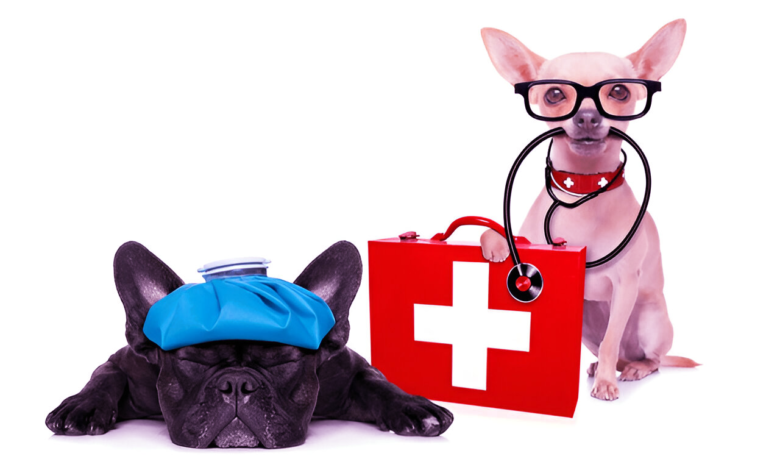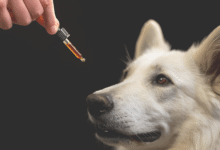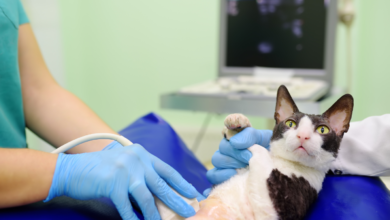
Pet Emergency Care: When to Visit a Vet in the UK
Pet emergency care in the UK is a crucial aspect of responsible pet ownership, ensuring that animals receive immediate medical attention when faced with life-threatening situations.
Pet emergency care in the UK is a crucial aspect of responsible pet ownership, ensuring that animals receive immediate medical attention when faced with life-threatening situations. Recognizing the signs of an emergency can make the difference between life and death, as timely intervention can prevent minor injuries from escalating into severe health complications. From accidents and poisoning to sudden illnesses and difficulty breathing, knowing when to seek veterinary help is essential for every pet owner. The UK has a well-established network of veterinary clinics, 24-hour emergency services, and animal hospitals that provide critical care for pets in distress. Understanding when a situation requires urgent care can alleviate suffering and improve recovery outcomes for pets.
Not all pet health concerns are emergencies, but some symptoms should never be ignored. While minor issues like mild limping or occasional vomiting may not require urgent attention, certain conditions—such as excessive bleeding, seizures, ingestion of toxic substances, or sudden collapse—demand immediate professional care. Being able to differentiate between non-urgent conditions and genuine emergencies can save precious time. In this article, we will explore the most common pet emergencies, how to recognize urgent medical conditions, and what steps to take when your pet needs emergency care. By staying informed and prepared, pet owners can ensure that their furry companions receive the best possible care in times of crisis, thereby improving their chances of a full recovery and preventing avoidable complications.
Recognizing a Pet Emergency
Understanding when a pet is experiencing a medical emergency is essential for every pet owner. Some emergencies are immediately apparent, such as a serious accident or uncontrollable bleeding, but others may be more subtle, requiring careful observation. Pet owners should watch for symptoms such as difficulty breathing, excessive bleeding, seizures, sudden collapse, vomiting or diarrhea lasting more than 24 hours, and signs of severe pain like whimpering, restlessness, or aggression. Lethargy, pale gums, and unresponsiveness can also be signs of a serious underlying condition.
Respiratory distress is one of the most urgent medical emergencies in pets. If your pet is gasping for air, has blue gums, is making choking sounds, or is coughing excessively, they require immediate veterinary intervention. Additionally, a rapid or extremely slow heart rate, severe bloating (especially in deep-chested dogs prone to gastric torsion), and extreme weakness are all red flags that warrant an emergency vet visit.
Common Pet Emergencies Requiring Immediate Care
Several situations require urgent veterinary attention. Among them are:
- Severe trauma: Any injury involving fractures, deep wounds, or head trauma should be treated as an emergency. Trauma from falls, vehicle accidents, or animal attacks can result in internal bleeding or organ damage, requiring immediate veterinary intervention.
- Poisoning: Pets can ingest toxic substances such as antifreeze, chocolate, human medications, certain plants, and household chemicals. Symptoms of poisoning may include drooling, vomiting, tremors, seizures, or even sudden collapse. If you suspect poisoning, do not wait for symptoms to worsen—seek veterinary help immediately.
- Gastrointestinal obstructions: If a pet swallows a foreign object, such as a toy, bone, or string, it may cause an intestinal blockage. This can lead to severe vomiting, abdominal pain, lethargy, and loss of appetite. An obstruction can quickly become life-threatening if not treated promptly.
- Seizures and neurological issues: Repeated or prolonged seizures can indicate epilepsy, toxin ingestion, or a serious neurological disorder. If your pet experiences multiple seizures in a short time or a seizure lasting more than five minutes, immediate veterinary attention is required.
- Heatstroke: This is especially common in dogs left in hot environments, such as cars or sunny outdoor spaces without shade and water. Symptoms include excessive panting, weakness, drooling, vomiting, and collapse. Without quick intervention, heatstroke can lead to organ failure and death.
- Sudden Collapse or Unresponsiveness: If your pet suddenly collapses, appears weak, or is non-responsive, this could indicate a serious underlying condition such as heart disease, internal bleeding, or anaphylactic shock. Immediate veterinary evaluation is necessary.
When to Call an Emergency Vet
If you suspect your pet is experiencing a medical emergency, contacting an emergency vet is the best course of action. Many veterinary practices in the UK offer 24-hour emergency services, while some specialize in critical care. When calling, provide details about your pet’s condition, symptoms, and any relevant medical history. The vet may offer first-aid advice over the phone and guide you on whether an immediate visit is necessary.
In some cases, knowing basic pet first aid can be beneficial. If your pet is bleeding, applying pressure to the wound with a clean cloth or bandage can help slow blood loss until professional care is available. In choking cases, gently opening the mouth and removing any visible obstructions can prevent suffocation. However, always seek veterinary care as soon as possible, as first aid is not a substitute for professional treatment.
Preparing for a Pet Emergency
Being prepared can save valuable time in an emergency. Keep a pet first-aid kit with essential supplies such as bandages, antiseptic wipes, gauze, a digital thermometer, and emergency contact information for veterinary clinics. Additionally, knowing the location of the nearest 24-hour veterinary clinic and keeping their contact information readily available can make all the difference in a crisis. Investing in pet insurance can also help cover the costs of emergency treatment, making urgent care more accessible and affordable.
Read More: Pet Healthcare in the UK: Everything Owners Need to Know
Conclusion
Pet emergency care in the UK ensures that animals receive the urgent medical attention they need in critical situations. Recognizing the signs of a medical emergency, from difficulty breathing to poisoning, allows pet owners to take swift action. By being prepared, understanding common pet emergencies, and having access to emergency veterinary services, pet owners can provide their beloved companions with the best chance of recovery. Prompt action and early intervention can save lives, reduce suffering, and prevent minor health concerns from turning into major crises.
Ultimately, responsible pet ownership involves not only regular check-ups and preventive care but also being equipped to handle emergencies. Quick thinking and immediate veterinary intervention can make all the difference in saving a pet’s life. By staying informed and proactive, pet owners in the UK can help ensure their pets remain safe, healthy, and well cared for. Ensuring that you have a plan in place for emergencies, from having the right supplies to knowing where to go, can make all the difference when time is of the essence.
FAQs
- What are the most common pet emergencies that require immediate care? Severe trauma, poisoning, difficulty breathing, seizures, sudden collapse, and gastrointestinal blockages are among the most critical emergencies requiring immediate veterinary attention.
- How can I tell if my pet is in pain? Signs of pain include whining, aggression, restlessness, excessive panting, hiding, and a reluctance to move or eat. Any sudden behavioral change could indicate discomfort.
- What should I do if my pet eats something toxic? Contact a vet immediately, avoid inducing vomiting unless instructed, and provide details about the substance ingested. Acting quickly can prevent serious complications.
- How can I prepare for a pet emergency? Keep a first-aid kit, research nearby emergency vets, invest in pet insurance, and learn basic pet first-aid skills to provide immediate care before professional help is available.
- Is pet insurance useful for emergency care? Yes, pet insurance can help cover the costs of emergency treatment, making it easier to afford life-saving care for your pet when unexpected health crises arise.








One Comment